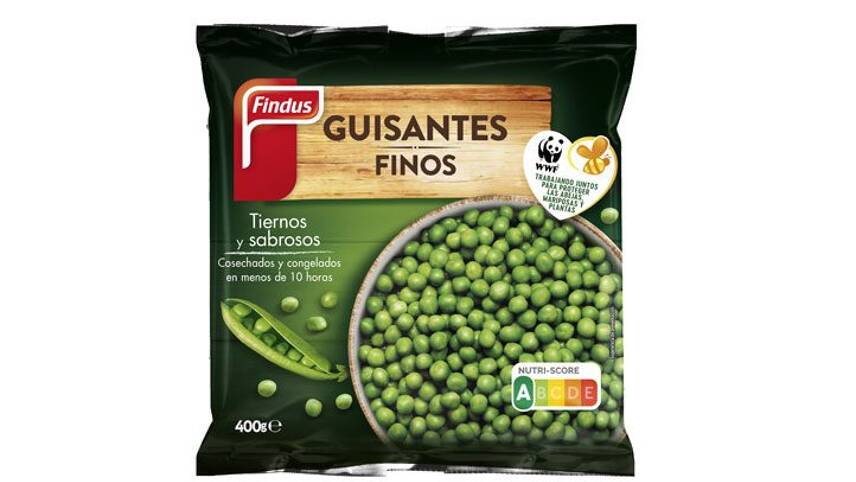Register for free and continue reading
Join our growing army of changemakers and get unlimited access to our premium content

Nomad Foods will introduce on-pack communications for customers detailing how the partnership is improving biodiversity
The partnership between Nomad Foods and WWF will aim to find nature-based solutions that respond to a triple challenge of feeding a swelling population, tackling the climate crisis and reversing biodiversity loss.
The first focus of the partnership will be vegetable production. A blueprint for landscapes that are suitable for nature-positive farming approaches will be created to enable food production while improving biodiversity. Additionally, the two organisations will aim to define measurement metrics for farms to find new ways of increasing key species such as pollinators like bees.
WWF-UK’s chief executive Tanya Steele said: “Changing the way that we produce and consume food is at the heart of WWF’s mission to build a sustainable future for people and nature. Our food system is one of the biggest drivers of climate change and nature loss, so it’s a system we simply must change.
“That’s why we’re delighted to be working in partnership with Nomad Foods, not only to reduce the environmental impact of farming, but also to encourage people to eat a more plant-rich diet that’s healthy for them and for the planet.”
Nomad Foods will introduce on-pack communications for customers detailing how the partnership is improving biodiversity. The iglo brand in Belgium and Portugal will be the first to introduce the labelling, followed by Findus in Spain next month and then Birds Eye in the UK in June.
The company is currently using the Sustainable Agriculture Initiative Platform (SAI Platform) Farm Sustainability Assessment (FSA) as a benchmark for farmers to improve practices. Nomad Foods has a target in place for all farming supplier to be verified as minimum silver and progress towards gold.
Nomad Foods’ chief executive Stéfan Descheemaeker said: “We want to help our consumers eat more sustainably by providing widespread access to great-tasting food that is better for people, better for the planet and affordable. To support this, we are committed to sourcing 100% of our vegetables and potatoes through sustainable farming practices by 2025 with 77% of our own grown vegetables already verified as such.
“Biodiversity loss is accelerating around the world. While improving biodiversity has been a focus for us and many of the farmers that we partner with for a number of years, I am excited that our collaboration with WWF will help us to extend our knowledge and create a much wider impact beyond our supply chain.”
Last year, Birds Eye was named as one of the members of the Sustainable Landscapes Humber Project alongside Yorkshire Water, Future Food Solutions and Hull and Teesside universities.
The project will focus on “pop up rainforests”, whereby a diverse range of cover crops are planted over farmland to capture carbon from the atmosphere. Early trials also show that this process can increase soil health and organic matter by up to 40 tonnes per hectare, which in turn sequesters more than four tonnes of atmospheric carbon annually. Research suggests that improving organic soil matter by just 1% would enable agricultural land to store an extra 200,000 litres of water per hectare.
Nomad Foods is also working with a network of businesses to create “food waste champions” to help reduce the amount of food waste produced by the sectors. The network of food waste champions will work within their organisations to cut back on the 1.1 billion tonnes of food waste that is produced across the food and drink retail and manufacturing sectors.
edie Explains: Biodiversity and Business
What is the relationship between biodiversity and business? What are the operational challenges and opportunities surrounding biodiversity? And what steps can be taken to reverse nature loss and restore natural habitats? This free edie Explains guide answers all of those key questions and more.
Produced in association with The Woodland Trust, this guide answers all of the questions that businesses might have in relation to biodiversity – a topic that is rising in prominence in the run up to the COP26 climate talks, and beyond.
The guide includes a case study from Sainsbury’s, outlining how the British retailer collaborated with The Woodland Trust to plant more than four million trees across the UK.
Click here to read the report.
Matt Mace


Please login or Register to leave a comment.